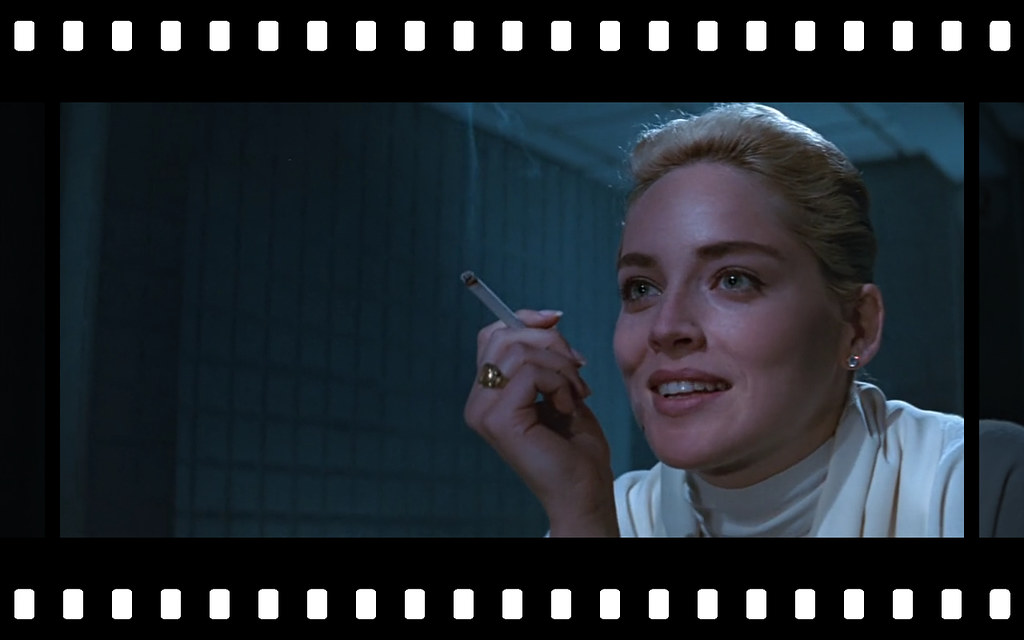Infidelity is a common subject in art and literature, and cinema is no exception. From romantic comedies to period dramas, the films we watch are often filled with stories of betrayal, temptation, and hurt.
Infidelity has been explored in many different ways on the big screen, often giving us insight into how people interact with each other and the consequences of their actions.
The purpose of this article is to examine some of the most iconic cases of adultery in the history of cinematography, where the main character had to deal with a cheating husband or wife.
InfidelityHub will look at how different genres of films have dealt with the subject in different ways, from comedies to thrillers. We will also discuss how these stories have impacted viewers and how they might influence our own choices in relationships.
The term “infidelity” can mean different things to different people. In the context of this article, it refers to a romantic partner having an affair, either physical or emotional, with someone other than their primary partner.
It can also refer to a breach of trust, such as lying, or acts of betrayal that can cause emotional pain and lead to the end of a relationship.
It is important to note that infidelity does not always lead to a divorce or break-up; it can also lead to a renewed commitment to the relationship or the development of a polyamorous arrangement.
When discussing infidelity in films, it is essential to remember that the effects of adultery are subjective. Different people can have different reactions to depictions of cheating, depending on how they have been affected by it in their own lives. For this reason, this article will examine the different ways that infidelity is portrayed in various genres and highlight the impact these stories can have on viewers.
Finally, it is important to note that some of the examples discussed in this article may contain content that some readers may find upsetting. If you have been impacted by infidelity in your own life, it might be best to avoid certain sections.
Adultery in Comedy Films
Adultery has long been a source of comedic relief in films, with characters often being comedic foils for the less humorous reality of infidelity. In 2000, the movie Meet the Parents introduced audiences to the concept of a cheating husband in a light-hearted and comedic way.
The film follows Greg Focker, a soon-to-be father-in-law who discovers that his would-be son-in-law is cheating on his daughter.
While Meet the Parents does not explicitly focus on the consequences of infidelity, its comedic elements serve as a reminder of how serious the issue of infidelity is in real life.

The 2010 sequel to Meet the Parents, Little Fockers, tackles the topic of infidelity from a different angle. This time, the focus is on the husband rather than the wife. Greg, the husband, is accused of infidelity by his wife, and the audience is left to decipher whether or not he is truly being unfaithful.
While the film does not offer a resolution to the situation, its comedic approach to the subject of infidelity leaves viewers with an interesting take on the consequences of such behavior.
The 2009 comedy The Hangover also delves into the topic of infidelity in a humorous way. In the movie, three friends take a wild and boozy bachelor party trip to Las Vegas, during which they encounter a husband who is suspicious that his wife has been unfaithful.
The movie highlights the humorous consequences of alcohol consumption and shows the characters dealing with the guilt and embarrassment that come with a cheating spouse.
Each of these comedy films offer a unique take on infidelity, and while they are humorous in nature, they do not shy away from the consequences of unfaithful behavior. These films demonstrate how a light-hearted approach to infidelity can serve as a reminder of its serious consequences and the emotional pain it can cause. As such, they offer an interesting perspective on the issue of infidelity in film and the impact it can have on viewers.
Adultery in Period Movies
Period films often explore the concept of infidelity, usually through the lens of social conventions and values of a specific era.
One of the most iconic examples of adultery in a period movie is The Scarlet Letter from 1995. It is based on Nathaniel Hawthorne’s novel of the same name, and stars Demi Moore as Hester Prynne, a young woman who is punished for committing adultery. The movie delves into the ostracism of a woman in a Puritan society who has committed the sin of adultery. Throughout the movie, viewers learn about the consequences of Hester’s infidelity and how it affects her life and the lives of those around her.
Anna Karenina, released in 2012, is another famous period drama that focuses on the consequences of adultery. The movie stars Keira Knightley as Anna, a beautiful socialite who embarks on a dangerous affair with Count Vronsky (Aaron Taylor-Johnson). As the affair progresses,
Anna is forced to confront the narrow-mindedness of the Russian aristocracy and the harsh consequences committed to those who transgress traditional morality.

The Favourite, released in 2018, is a dark comedy set during the early 18th century England. It stars Olivia Colman as Queen Anne, who is having an affair with her closest confidante, Sarah Churchill.
As the affair progresses, it takes an unexpected turn as Sarah begins to manipulate the queen and her court.
The movie also highlights the double standards of the era, where men are allowed to take mistresses, but women are not.
Adultery in period films serves to explore the nature of love, morality, and the power dynamics between men and women in these eras.
These movies also explore the consequences of infidelity and its effect on those involved, making them an important tool to understanding the past.
Adultery in Thriller Movies
Thriller films have long been used as a tool to explore the complexities of human relationships, especially when it comes to adultery.
From Basic Instinct to The Girl on the Train, these movies have explored the dark and often dangerous consequences of cheating spouses.
Basic Instinct (1992)
Directed by Paul Verhoeven, Basic Instinct is a psychological thriller that focuses on the consequences of infidelity.

It stars Michael Douglas as Detective Nick Curran and Sharon Stone as his murder suspect, Catherine Tramell. As Nick investigates Catherine, he grows increasingly suspicious of her and begins to suspect that she may have been involved in the murder of her husband.
What Nick finds out is that Catherine's husband was cheating on her, and she killed him in a fit of rage. Basic Instinct is an exploration of the dangers of infidelity and the lengths people will go to protect themselves.
Fatal Attraction (1987)
Directed by Adrian Lyne, this movie stars Michael Douglas and Glenn Close. Douglas plays Dan Gallagher, an attorney who has an affair with Alex Forrest (Close). Dan's world is turned upside down when Alex's obsession with him leads her to threatening his marriage and taking extreme measures to keep him from leaving her. Fatal Attraction is a cautionary tale about the dangers of having an affair and how it can lead to obsession.
The Girl on the Train (2016)
Directed by Tate Taylor, this psychological thriller stars Emily Blunt as Rachel Watson. Rachel's life is in disarray after her husband Tom (Justin Theroux) had an affair and left her.
In her anguish, Rachel begins to spy on Tom and his new wife, Anna. She discovers that Anna is also having an affair with a man named Dr. Kamal Abdic, and when Rachel confronts him, she finds out that he has an ulterior motive for the affair. The Girl on the Train examines the complexities of infidelity and how it can lead to dangerous consequences.
These three thrillers use adultery as a means to explore the complexities of human relationships and the dark paths they can take. In Basic Instinct, the consequences of infidelity are explored in a cold-blooded murder, while Fatal Attraction shows the dangerous obsession it can lead to. The Girl on the Train examines how the consequences of cheating can be even deeper and more dangerous than expected. Together, these three movies provide a comprehensive look at the consequences of infidelity in thriller films.
Adultery in Adventure Films
Adventure films are always filled with thrilling moments and stories of impossible feats. But sometimes, the protagonists of these stories have to deal with more than just physical obstacles. In some cases, the very foundation of the hero’s life is put to the test: adultery.
The Hunger Games (2012) follows Katniss Everdeen as she takes part in the Hunger Games, a dangerous competition in which only one person can survive. But Katniss quickly learns that her life isn’t the only thing in danger. Her parents’ marriage is threatened when her mother’s former lover, the mayor of District 12, begins to pursue her. Faced with the prospect of losing her family, Katniss must find a way to save her parents’ marriage.
The Bourne Identity (2002) follows Jason Bourne as he attempts to piece together his identity after suffering from memory loss.
In the process, he discovers that his wife has been cheating on him. He ultimately decides to use his new-found strength and intelligence to take revenge on his wife and her lover.
Indiana Jones and the Temple of Doom (1984) follows Indiana Jones as he attempts to save an ancient village from a cult. In the process, he discovers that his companion, Wilhelmina, is having an affair with a village elder.
The affair leads to a dangerous confrontation between Indiana Jones and the cult leader as the two fight for control of the village.

In all of these adventure films, adultery plays an important role in the stories. It tests the main characters’ strength and courage as they overcome their own inner turmoil and external obstacles.
This makes the stories all the more powerful and memorable.
Adultery in adventure films often serves as a way to add further tension and conflict to the stories. It can also be used to add a layer of complexity to the characters and their relationships.
By exploring the difficult decisions that come with navigating infidelity, these films leave viewers thinking long after they’ve finished watching.
As with other types of films, adultery in adventure films can be used to demonstrate the consequences of straying from one’s morals and values.
By depicting characters that are forced to confront the difficult choices that come with having an extramarital affair, these films help to illustrate the damaging effects of infidelity.
In conclusion, adultery in adventure films can be used to add tension and complexity to the story and its characters. From Katniss’ struggle to save her family’s marriage in The Hunger Games to Indiana Jones’ confrontation with the cult leader in Temple of Doom, these stories demonstrate the wide range of consequences of infidelity.
Adultery in Drama Films
Adultery in drama films can be seen as a powerful tool of storytelling, often being used to portray a character's inner conflicts and to explore the theme of a person's moral choices. In many cases, the topic of adultery in films is used to bring out the darker side of human nature, often showing how a seemingly simple decision can have long-lasting effects.
American Beauty (1999) is a classic example of how adultery is used in a drama film. The film follows protagonist Lester Burnham, a middle-aged man who is struggling with his marriage to Carolyn Burnham. In the midst of his mid-life crisis, Lester finds himself attracted to his daughter's friend, Angela. The film uses the topic of adultery to explore themes of mid-life crisis and personal identity. Despite the consequences of his actions, Lester is eventually able to find some level of redemption by the end of the film.
Another great example of adultery in a drama film can be found in Revolutionary Road (2008). The film tells the story of Frank and April Wheeler, a married couple in a suburb who are struggling to find meaning in their lives. After a fight one night, April confides in her friend, John Givings, and reveals that she had an affair with a married man.
The film uses the topic of adultery to explore themes of discontentment, emotional detachment, and how a seemingly simple mistake can have long-lasting consequences.
Notes on a Scandal (2006) is a perfect example of how the topic of adultery can be used to explore themes of morality and ethics.
The film follows Barbara Covett, a teacher who is unimpressed with her life and takes an interest in a colleague, Sheba Hart. Sheba has an affair with a student, and eventually Barbara reveals the affair to her superiors.
The film uses the topic of adultery to explore themes of secrecy, loyalty, morality, and the consequences of hiding one's deepest secrets.
Overall, Adultery in drama films can be a powerful tool for storytelling, often being used to explore themes of morality, personal identity, and the consequences of seemingly simple decisions. In American Beauty (1999), Revolutionary Road (2008), and Notes on a Scandal (2006), adultery is used to explore these topics to their fullest, showing the complexities of human relationships and the effects of a moral misstep.
Conclusion
Infidelity in film has long been a topic of discussion and debate, with the depiction of cheating spouses in movies often considered to be a reflection of what is socially acceptable in our society. As we have seen in this article, infidelity has been featured in movies from numerous genres, ranging from comedy to thriller, and from period pieces to romantic dramas.
The portrayal of cheating spouses in films can have a huge impact on viewers, often causing them to reflect on their own relationships and how they would handle a similar situation. In movies like The Scarlet Letter and American Beauty, the infidelity of a significant other is seen as a symbol of emotional and moral decay, while in others such as The Hangover and The Bourne Identity, cheating is used as a source of humor.
No matter how infidelity is depicted in film, it is certain to evoke strong emotions and provoke thoughts and conversations. The power of film to explore this delicate topic and move people to think and act can be a great tool in understanding our own relationships and the potentially destructive effects of cheating, even if it is just on the big screen.
As a result of this article, we can see that the depiction of infidelity in film has a huge influence on our society and how we view our relationships.
While it may be a difficult subject to explore, it is an important one that should be discussed more openly. By understanding the nuances of infidelity in film, we can gain a better understanding of the effects it can have on our own lives and relationships.
